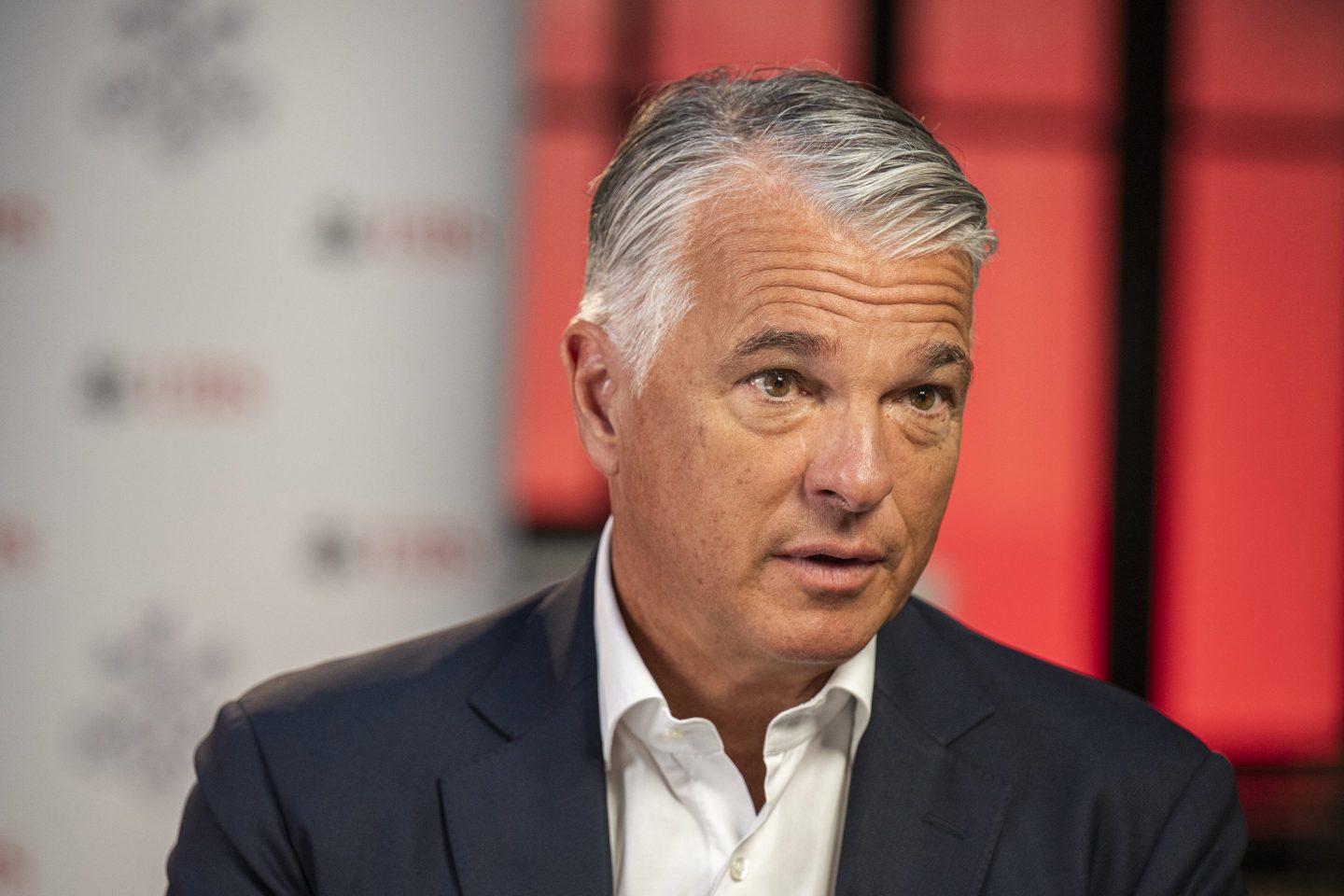The start of the year is normally a time when Europe’s bankers wait nervously for a word on their bonuses. But weeks into 2025, some are starting to wonder if they will even have a job.
On Thursday, Deutsche Bank AG Chief Executive Officer Christian Sewing put his staff on notice, saying he’s looking to cut headcount including managers. HSBC Holdings Plc CEO Georges Elhedery earlier this week said it’s shuttering large parts of its investment bank in Europe and the US.
Even Swiss private banking isn’t immune to the turmoil: UBS Group AG is shedding hundreds of jobs in its home market, while Julius Baer Group Ltd. is set to announce a wave of redundancies over the next two years.
Sewing told reporters that 2025 will be “the year of reckoning,” adding “nothing is off limits.”
Behind all these disparate moves is a push to improve lagging profits, a concern that’s only likely to get more acute as the new Trump administration’s pro-business approach to deregulation in the US puts Europe’s lenders potentially at a disadvantage over their Wall Street rivals. In addition, stagnant growth in the European Union is further threatening to weigh on the outlook for the region’s lenders.
The contrast between Europe’s and US banks is already quite stark. At JPMorgan Chase & Co., which this month announced the largest profit in its history, Chief Financial Officer Jeremy Barnum said one of the biggest issues he faced was the “high-class” dilemma of what to do with all the excess capital the bank was generating. The message from Goldman Sachs Group Inc. CEO David Solomon was all about confidence as he talked about positioning the firm for a resurgence in dealmaking.
“It’s a reflection of how European banks have struggled to compete with their US peers” since the global financial crisis, said John Cronin, a Dublin-based financial industry analyst and founder of SeaPoint Insights. “If anything, given the new pro-growth Trump administration, the top five US banks will become relatively stronger over the coming years.”
Deutsche Bank’s Sewing on Thursday pointed to the potential for a cull of management ranks and even entire business lines in the coming years. This followed a 14% increase in expenses in the fourth quarter from a year earlier, overshadowing a better-than-expected performance in the investment bank, where fixed-income traders notched their best fourth quarter on record.
Earlier this week, Bloomberg News reported that UBS had kicked off a wave of job cuts in Switzerland, with hundreds of employees receiving notice in recent weeks. The push is part of the ongoing integration with Credit Suisse, a former rival it bought in an emergency rescue two years ago.
UBS CEO Sergio Ermotti told Bloomberg this month that he would keep cutting headcount in the wake of the historic acquisition. The Swiss lender seeks to shed another $5.5 billion in costs in addition to the $7.5 billion already achieved since the deal.
The reduction at Julius Baer will be across divisions and the bank’s 15-person executive board will also be significantly shrunk, Bloomberg News reported separately this week. Under CEO Stefan Bollinger, the Zurich-based wealth manager is looking at wrapping up a turnaround launched in the aftermath of losses linked to the defunct Signa real estate empire. The bank had about 7,400 workers at the end of 2023.
Julius Baer is set to report fourth-quarter results on Feb. 3 and UBS the following day.
To be sure, it isn’t all doom and gloom for Europe’s lenders. Some of them are planning to raise payouts this year. Deutsche Bank is looking at a 10% increase in bonus for its investment bankers, Bloomberg News reported this month, while BNP Paribas SA is eyeing 5%. Barclays Plc is set to raise the number by as much as 20% after an improved year for traders and advisory teams.
But the changes at HSBC, the most dramatic yet, are likely to unfold through June. Since taking charge five months ago, CEO Elhedery has been a man on a mission to give the British lender a complete makeover, with his latest move set to abandon all dreams of rivaling Wall Street peers.
“Going forward we will focus on areas where we can best serve our corporate and institutional clients,” said Elhedery’s lieutenant Michael Roberts, who heads the corporate and institutional banking division.
Still, the bank will have a strong footprint in Asia, especially China and Hong Kong, and the Middle East.
“I don’t think this is about having to make a difficult choice between serving China versus serving the West – it’s about cold hard commercial facts,” said Alex Marshall, managing partner at CIL, a consultancy firm. It is “a realistic and pragmatic doubling-down of their bet on Asia and MENA capital flows” and it’s not that they are really abandoning a position of great strength in Europe and the US, he said.












